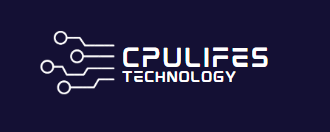Speed Up Extremely Slow Windows XP Booting and Operation
Is your Windows XP taking forever to boot and operate? Learn how to speed it up with these simple tips.
Causes of Sluggish Performance
There are several factors that can contribute to sluggish performance in Windows XP booting and operation. One common cause is file system fragmentation, which occurs when files on the hard disk are not stored in contiguous blocks. This can slow down the booting process and overall system operation. Another potential cause is the presence of malware or viruses, which can consume system resources and cause performance issues. Additionally, outdated or incompatible device drivers can also lead to slow booting and operation.
File System Fragmentation
File system fragmentation occurs when files are broken up into smaller pieces and stored in different locations on the hard disk. This can lead to longer boot times and slower overall system performance. To address this issue, you can use the built-in Disk Cleanup tool in Windows XP to defragment the hard disk and optimize file storage.
Malware and Viruses
Malware and viruses can significantly impact system performance by consuming system resources and causing instability. It is important to regularly scan your system using a reliable antivirus software such as Avira, AVG AntiVirus, or Microsoft Defender Antivirus to detect and remove any malicious software that may be causing performance issues.
Outdated or Incompatible Device Drivers
Outdated or incompatible device drivers can also contribute to slow booting and system operation. You can use the Device Manager in the Control Panel to check for any yellow exclamation marks next to devices, indicating a problem with the driver. Updating or reinstalling the affected drivers can help improve system performance.
In addition to these common causes, other factors such as a cluttered startup process, excessive temporary internet files, and outdated software can also impact system performance. By addressing these issues, you can help speed up extremely slow Windows XP booting and operation.
While Fortect cannot guarantee to fix the issue, it can secure the system and restore it to its pre-infected state after virus damage.
Eliminating Unwanted Files
- Using Disk Cleanup:
- Open My Computer
- Right-click on the C: drive
- Select Properties
- Click on the Disk Cleanup button
- Check the boxes next to the types of files you want to remove
- Click OK to delete the files
- Using CCleaner:
- Download and install CCleaner
- Open the program and click Analyze
- Once the analysis is complete, click Run Cleaner
- Manually clearing temp files:
- Open Run by pressing Windows Key + R
- Type %temp% and press Enter
- Delete all the files in the temp folder
- Repeat the process for temp folder in the Windows directory
Optimizing Visual and Memory Settings
To optimize the visual and memory settings in Windows XP for faster booting and operation, follow these steps:
First, go to Control Panel and open the System applet. Click on the Advanced tab and then under Performance click on Settings. Here, select Adjust for best performance to disable unnecessary visual effects and improve system performance.
Next, navigate to the Advanced tab and under Virtual Memory, click on Change. Check the Custom size option and set the initial size and maximum size based on your system’s specifications. This will optimize memory usage and improve overall performance.
To further optimize memory settings, open the System Configuration Utility by typing msconfig in the Run dialog box. Under the Startup tab, uncheck any unnecessary programs that launch at startup. This can help reduce memory usage and improve boot times.
You can also optimize visual and memory settings by updating device drivers and ensuring that your computer’s hardware is functioning properly. Check for driver updates for your graphics card and other hardware components to ensure they are running efficiently.
Consider running a full system scan using a reliable antivirus software such as Microsoft Defender Antivirus to check for any malware or viruses that may be affecting system performance. Remove any threats that are detected to improve overall system stability.
In addition, consider optimizing your web browser settings by clearing temporary internet files, cookies, and cache. This can help improve browsing performance and reduce memory usage.
Maintaining System Updates and Drivers
Regularly updating your system and drivers is crucial for maintaining the performance and security of your Windows XP operating system. Outdated drivers and software can slow down your computer’s booting and operation, so it’s important to stay on top of these updates.
To ensure that your system is up to date, regularly check for Windows updates by accessing the Control Panel and clicking on “Windows Update.” This will allow you to download and install any available updates for your operating system, including important patches and security fixes.
In addition to system updates, it’s also important to keep your device drivers up to date. Outdated drivers can cause performance issues and compatibility problems. To update your device drivers, go to the Device Manager in the Control Panel, right-click on the device you want to update, and select “Update Driver Software.”
It’s also a good idea to regularly check for updates for third-party software and drivers, such as antivirus programs, web browsers, and graphics card drivers. These updates can help improve the overall performance and security of your system.
By regularly maintaining system updates and drivers, you can help speed up your extremely slow Windows XP booting and operation, while also ensuring that your computer is protected against security vulnerabilities.
Using Windows XP on your computer may result in extremely slow performance and limited functionality. Download this tool to run a scan





